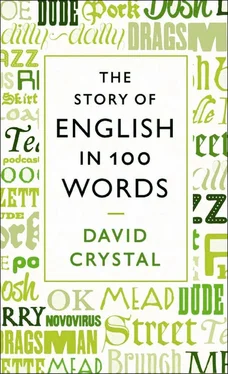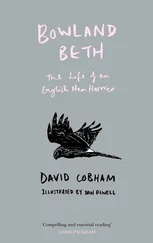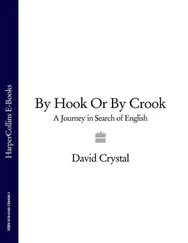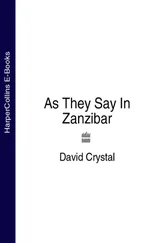Derived uses soon follow, as the case of Alzheimer’s shows. The disease was first described by the German pathologist Alois Alzheimer in 1907, and the name was soon used as an adjective in such phrases as Alzheimer patients and Alzheimer sufferers , sometimes with an ’s and sometimes not. By the 1930s, the name of the disease was being abbreviated to Alzheimer’s or (especially in the USA) Alzheimer , even in medical journals. Concern over the effect of the disease grew in the early 2000s, so much so that it became one of the few diseases to be identified by an initial letter: the big A . ( The big C — cancer — is another.)
Surnames that become common nouns and adjectives don’t have to belong to a real person. English literature has provided several examples of characters who have given their name to a general situation. What would it mean to call someone a Scrooge, a Cinderella, a Girl Friday, a Romeo ? In each case the situation described in the original book has been left behind, and the words are even sometimes written without the capital letters. Rather less usual is the use of two surnames together. A Jekyll and Hyde personality. A David and Goliath situation. A Holmes and Watson relationship . There aren’t many of these.
Several fields go in for first name + surname. The world of roses, for example, has hundreds of examples of cultivars named after the whole name of an individual, including such well-known personalities as Cary Grant and Bing Crosby . And we’ll find whole names in such domains as dog breeds ( Jack Russell ), ships ( USS Ronald Reagan ), locomotives ( Winston Churchill ), cocktails ( Rose Kennedy ) and cakes ( Sarah Bernhardt ). Titles are not ruled out ( Earl Grey tea). These do lead to some unusual English sentences: ‘Just smell that Cary Grant’; ‘Would you like some Earl Grey?’; ‘I’ll have two Rose Kennedies.’
 86. Grand — money slang (20th century)
86. Grand — money slang (20th century)
Some areas of vocabulary are more productive than others. I once went through a dictionary pulling out all the ways there are in English for saying ‘good’ things about the world (such as wonderful, happily, a marvel ) and all the ways there are for saying ‘bad’ things (such as awful, clumsily, a disaster ). I found 1,772 expressions of positive sentiment and 3,158 expressions of negative sentiment. It’s almost twice as easy to be critical in English, it seems.
Everyday concerns attract the largest vocabularies, especially as slang. Drugs, sex and booze have each generated hundreds of expressions. And so has money, both for the general meaning and for specific units and amounts. The different currency systems of English-speaking countries have added to the diversity ( §31). Even old terms can live on in idioms: people still say in Britain that someone is worth a few bob , even though bob for a shilling (‘12 old pence’) disappeared decades ago. In Australian English we find buckaroo (‘a dollar coin’), brick (‘$10’) and shrapnel (‘small change’). In Jamaica, a coil is a ‘roll of banknotes’. In Trinidad, a dog is a ‘$20 bill’ — perhaps an echo of the days when people used dog dollars (‘dollar coins where an original lion design had been worn away into something resembling a dog’).
Slang words for ‘money’ vary greatly. Some go back hundreds of years. In Britain, brass , associated with the colour of gold coins, is found from the late 16th century. Ready (= ‘ready money’) is recorded from the 17th, now heard only in the plural readies . Also from the 17th century is quid , originally referring to a sovereign or guinea. It probably comes from the Latin word for ‘what’ ( quid ), which transmuted into a jocular sense of ‘the wherewithal’ at a time when Latin was widely known.
Cockney rhyming slang has given us several expressions. Bread is from bread and honey (= ‘money’). Five (‘£5’) produces beehive ; a fiver is a lady (from Lady Godiva ). Ten (‘£10’) gives us Big Ben as well as cock and hen . Eight (‘£8’) is a garden , thanks to garden gate . Amounts and numerals sometimes appear as back-slang: dunop, evif, nevis, yennep . The rhyming practice crossed the sea. In Australia we find Oscar Asche (an Australian actor of the early 20th century) for cash , Oxford scholar for dollar and bugs bunny for money . In South Africa, ‘money’ is sometimes called tom (from tomfoolery = ‘jewellery’). And new rhyming slang is still being coined. In the late 20th century, we find ayrton as a word for ‘£10’, Why? Racing driver Ayrton Senna = tenner .
The USA has a huge range of slang expressions, some widely known thanks to their regular use in films and television, such as (for dollars) bucks and greenbacks , and (for money in general) dough , potatoes , lettuce and cabbage (the last two from the green colour of the banknotes). The origin of some of the words is a real puzzle. There has been plenty of speculation, but no firm conclusion, over moolah and spondulicks (both occurring in various spellings). And if I offer you fifty smackers , is this because people often kissed banknotes or plonked them down on the table? Mazooma is from Yiddish. So is motza (also in various spellings), used chiefly in Australia.
New words continue to arrive. The 20th century brought lolly (probably from lollipop ) and dosh (perhaps related to a doss , ‘a place to sleep in a common lodging-house’). A surprising development was archer for ‘£2,000’. It came from the court case involving British author Jeffrey Archer in which a bribe of this amount was alleged to have been used. It probably won’t be part of the language for long.
The vast majority of these words stay in their country of origin. We don’t find Americans describing dollars as quids or the British describing pounds as bucks. That’s why grand is so interesting. It’s one of the few money words to have travelled. First used in the USA in the early 1900s, meaning ‘$1,000’, it was very quickly shortened to G . The term then transferred to British usage, meaning ‘£1,000’. British people happily talk about something costing a grand . But the digital age seems to have pushed G out of fashion. During the 1980s K , influenced chiefly by kilobyte , became the abbreviation of choice for ‘thousand’ in business plans and job advertisements. No city gent seems to earn Gs any more.
 87. Mega — prefix into word (20th century)
87. Mega — prefix into word (20th century)
Mega- became a popular prefix towards the end of the 19th century. Scientists found it a useful way of expressing something that was very large or abnormally large. So, a relatively large bacterium was called a megabacterium . As a unit of measurement, it expressed a millionfold increase, as in megawatt . And in the 20th century, from around the 1960s, it came to mean anything of great size or excellence. In the city, takeover bids involving large sums of money were megabids . Large shopping complexes were megacentres . An extremely successful song or film was a megahit . People attended megafestivals .
Читать дальше

 86. Grand — money slang (20th century)
86. Grand — money slang (20th century) 87. Mega — prefix into word (20th century)
87. Mega — prefix into word (20th century)










